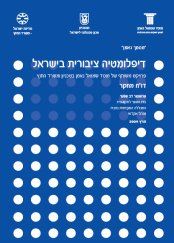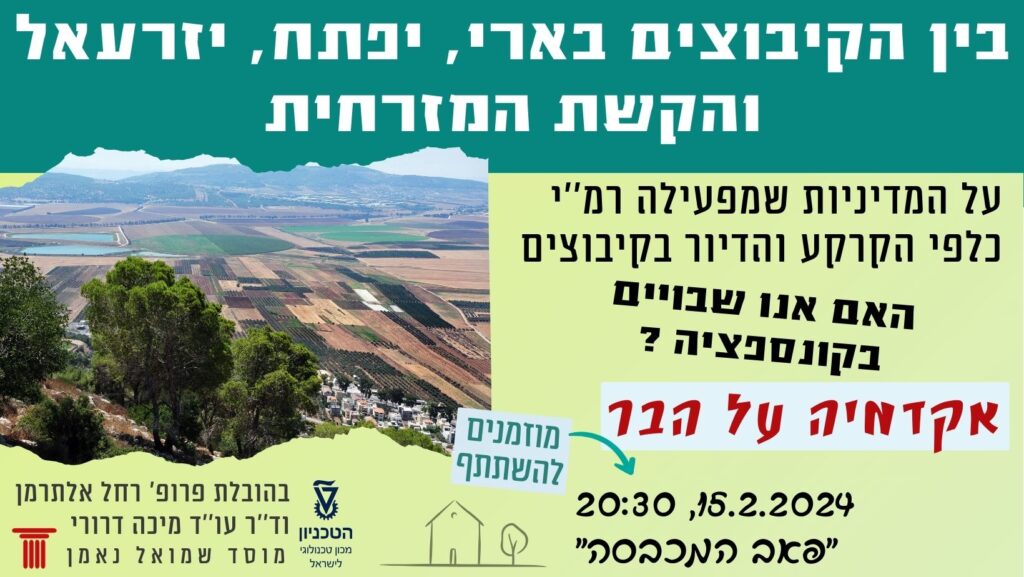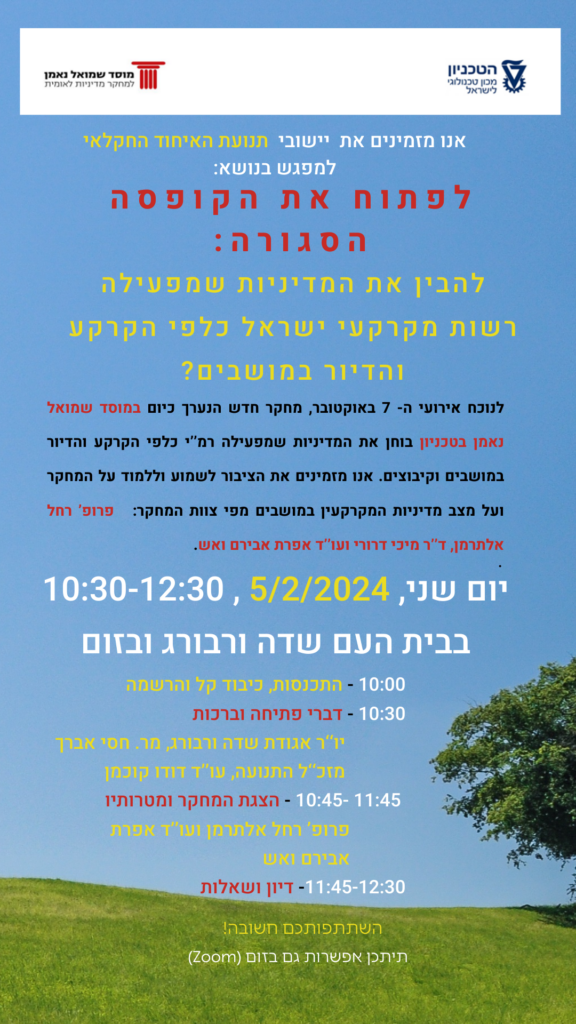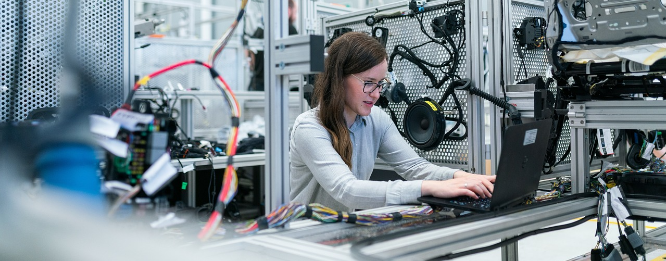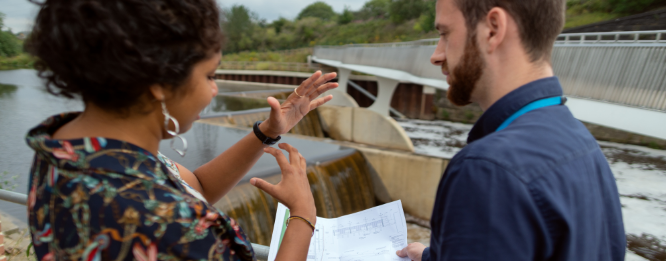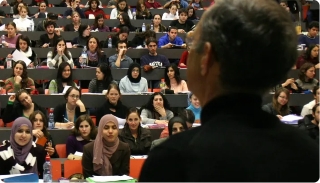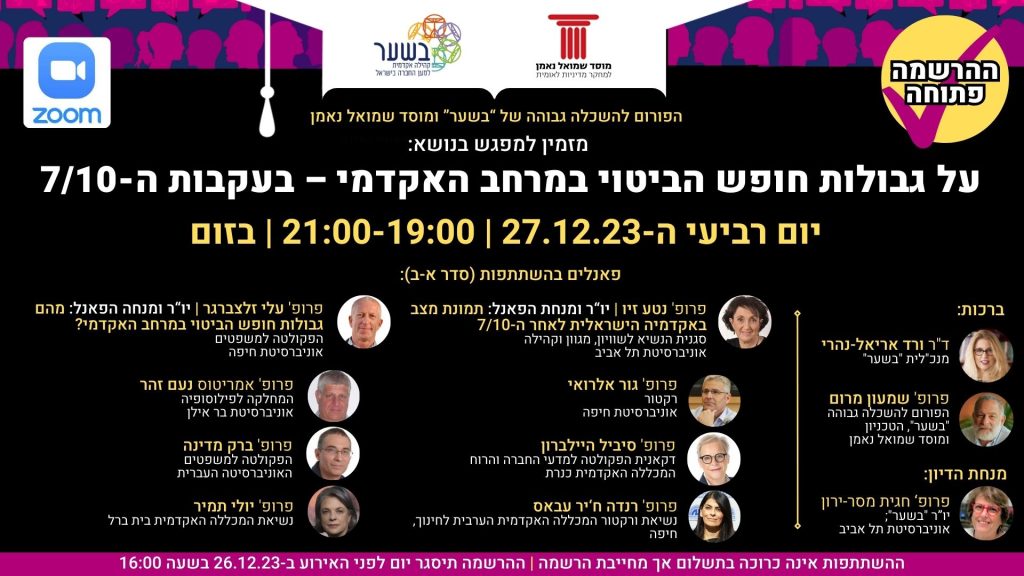The decision to conduct a research project in order to present recommendations for Israel public diplomacy (PD) policy relies on the premise that even though there is continuous concern with the subject by government agencies and others in the field, there is from time to time a need to update contents and methods, target groups, and agents on the strategic level and in practical activity. The goal of such revisions is to help in devising a comprehensive policy that will answer the needs of Israel and its citizens; that will follow-up research findings in Israel and the world; that will be able to cope with positions, opinions, and controversial issues; with new technologies, and with the need for creativity, uniqueness, strength, and ability to infuse the message into the agenda of today’s media.
Changes in environments, circumstances, perceptions, methods, and technologies in the world and in Israel, demand to continuously update PD policies. A global “battle for awareness” has been taking place in recent years more than it used to be in the past. In this worldwide process, the viewpoints of countries, including Israel, have become harder to transmit and justify, in contrast with the extreme actions taken by radical states and groups. The problems of Israeli PD stand out also in view of suggestions to “turn back the hands of time”, for example, the renewal of questioning Israel’s right to exist as a state and its ability to survive in the area; in the argument and debate on whether Israel and the Palestinians should coexist in one country or two? In the suggestions to revive the debate on Israel’s legitimacy, on the elimination of the Balfour Declaration and the Partition Plan; and in initiatives to boycott Israel and Israelis, to obliterate the State of Israel and have all the citizens return to where they came from. Unlike the past, this phenomenon is no longer the sole heritage of propaganda of dictatorial regimes, but is deeply seated in liberal democratic countries.
The technological revolution allows for unrestrained spread of propaganda with global influence via satellite stations, Internet websites, direct broadcasts from home videos and audio cassettes. These allow an exceptionally extensive distribution of enmity with Israel at the center.
Therefore the basic premise of the project is that in the coming years, the battle for Israel’s images will have to cope with problems beyond those posed today; that it is necessary to adapt Israel’s PD to changing circumstances, in terms of contents, channels, methods, and the treatment of audiences; and that this needs to be produced and applied rapidly. The objective is thus to offer tools for the formulation of PD policy, based on conceptual-empirical studies as well as on the opinions of experts in the field. Another premise is that the conflict in the Middle East cannot be bypassed in any Israeli PD formulation, be it hard-, soft- or smart- power*. The conflict is a basic component of Israel’s image. Our empirical studies reveal its presence in both the (sometimes distorted) perceptions of persons who lack information and those who possess more (and sometimes more accurate) information about Israel. It is true that Israeli PD faces a serious dilemma: should it opt for concealing the conflict as much as possible (and thus lean on audiences’ ignorance) rather than dealing with the conflict (and accepting a perhaps a-priori anti-Israel position)? Based on our findings, we conclude that the presentation of basic Israeli positions, including on the conflict, should not be avoided but an appropriate combinations of conflict-related and other topics should be dealt with and adapted to different countries, audiences and situations.
———————-
* Terms introduced and integrated in the study of public diplomacy by Joseph Nye and others:
“Hard Power” – the use of military power or economic pressure and the like for the achievement of political goals in the international arena;
“Soft Power” – the use of ideas, values, ethical norms and aspects of quality-of-life improvement (culture, tourism, science and technology, cultural encounters, various types of cooperation) for the achievement of political goals in the international arena;
“Smart Power” – the sophisticated use of hard power and soft power combinations for the achievement of political goals in the international arena.


